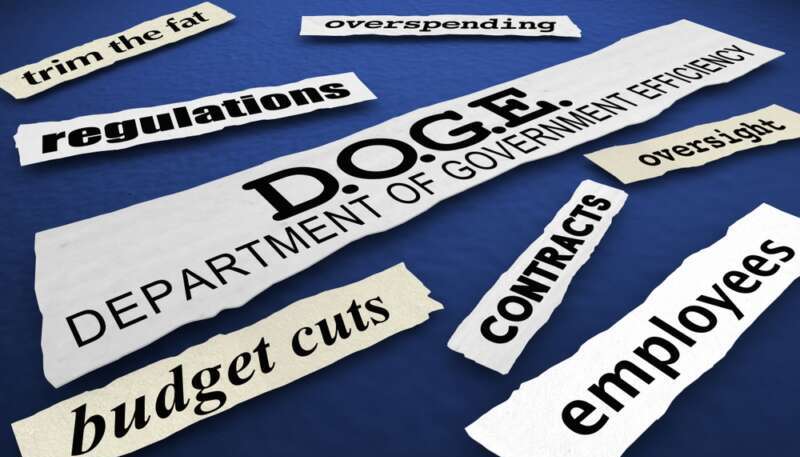
David Walker – who served as the seventh comptroller general of the United States and the head of the Government Accountability Office (GAO) from 1998 to 2008 – told members of Congress today that President-elect Donald Trump’s proposed Department of Government Efficiency (DOGE) advisory group could help to cut Federal government spending to the tune of hundreds of billions of dollars per year.
The DOGE – which is not an official government agency – is aiming to hold the Federal government more accountable for managing taxpayer dollars. President-elect Trump has tapped businessmen Vivek Ramaswamy and Elon Musk to lead the DOGE.
“The DOGE effort is clearly needed, and if properly designed and effectively implemented, could save several $100 billion a year, but nowhere close to $2 trillion a year,” Walker said, referring to the number Musk said the group wants to cut from the Federal budget annually.
During a Dec. 11 hearing before the House Budget Committee, Walker shared some examples of potentially impactful work for the DOGE, which he said “could include eliminating, consolidating, and devolving selected organizations, facilities, [and] functions, while leveraging technology, improving internal controls, reforming human capital and acquisition practices, and adopting major management principles along with strengthening work requirements.”
Walker said the DOGE should also explore deregulation efforts and “additional reorganization and impoundment authority with appropriate congressional control.”
“It should also seek input from experienced, outside experts in government transformation and relevant congressional committees, including this committee,” Walker added.
Additionally, he advised the group to consider the work of the GAO and Federal agency inspectors general (IG), as well as coordinate its efforts with the White House Office of Management and Budget.
Specifically, Walker said the DOGE should look at GAO’s High Risk List – which outlines programs and operations that are vulnerable to waste, fraud, abuse, or mismanagement, or are simply in need of transformation. The High Risk List is updated at the start of each new Congress.
He also said the DOGE should refer to GAO’s annual report highlighting opportunities to reduce fragmentation, overlap, and duplication in Federal programs. According to the 2024 report, congressional and agency action in these areas has yielded about $667 billion in cost savings.
Walker said the group should also look at the annual improper payments report that comes out every year from the GAO and IGs. In fiscal year 2023 alone, Federal agencies made $236 billion in improper payments.
“Importantly, additional steps beyond the DOGE will be needed in order to restore fiscal sanity and sustainability,” he told lawmakers.
In addition to the DOGE, Walker also proposed the creation of a statutory fiscal sustainability commission.
“There’s no way that Congress can pass much-needed, long-overdue spending and tax reforms in a piecemeal fashion and in a timely manner and avoid the debt crisis,” he said. “Therefore, we need to create a statutory fiscal sustainability commission that will meaningfully engage the American people, solicit input across the board, revenues, social insurance, defense, and other spending, etc. Everything needs to be on the table.”
The former GAO chief noted that the Federal government has “too many departments” and “too many regions,” and said that many existing programs and practices “are based on the 1950s.”
“Let me just close with this – as far as I know, I’m the only Federal agency head that has transformed and right-sized a Federal agency in the 21st century. We did this at GAO, which is governmentwide,” Walker said.
“We made it 15 percent smaller, 50 to 100 percent more productive, three times the outcome-based results, the second best place to work in the Federal government, and a 95 percent positive rating for the toughest client on Earth: the U.S. Congress,” he said, adding, “So, hopefully [the DOGE] will learn from that and take a lot of those principles that are transferable and scalable with the rest of government. But that’s only a down payment – we need the commission.”
